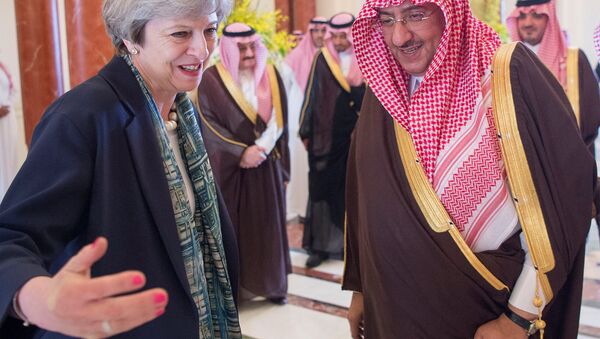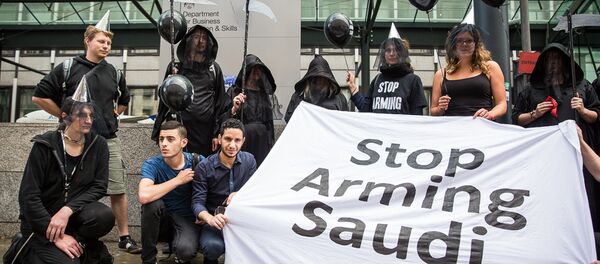As part of a wide ranging post-election shakeup of May's cabinet, Rory Stewart, Former Deputy Governor of Maysan, Iraq in the wake of the 2003 invasion, has been appointed International Development Minister, while Mark Field has been appointed Foreign Minister. Alan Duncan and Tariq Ahmad have also both been appointed Junior Ministers in the Foreign Office.
Really delighted to be appointed as Minister of State in the Foreign Office, and Minister of State in International Development
— Rory Stewart (@RoryStewartUK) June 13, 2017
An honour to be sworn in today as Member of Parliament for #Rutland and #Melton pic.twitter.com/29sDRZBY3r
— Sir Alan Duncan MP (@AlanDuncanMP) June 14, 2017
Honoured to be appointed @foreignoffice Minister for #Asia and #Pacific. Look forward to working closely with international partners.
— Mark Field MP (@MarkFieldUK) June 16, 2017
Honoured&delighted 2 be appointed Minister of State @foreignoffice by @theresa_may @Number10gov Lookg fwd 2 my new role @ this crucial time
— Lord Tariq Ahmad (@tariqahmadbt) June 13, 2017
Human rights campaign group Reprieve said the new Ministers would add "much-needed independence and insight" to the Foreign Office, and expressed hope they would "urgently" review UK funding for human rights violators overseas, and work to bring home British citizens facing "grave" abuses abroad, such as Andy Tsege and Kris Maharaj." The group also identified several key areas in which the new team could "help change British foreign policy for the better."
"Stop spending UK taxpayers' money on foreign police and criminal justice institutions involved in torture and the death penalty, stand up to dictators, including so-called allies in Saudi Arabia and Bahrain, who execute protesters and juveniles, and withdraw the UK's unconditional support for Trump's secret and illegal drone wars around the world," Reprieve urged.
PRESS RELEASE: Shakeup at the Foreign Office is a Chance to Change Tack #Reshuffehttps://t.co/RAw6yjwwPj pic.twitter.com/e3TUC5FSTp
— Reprieve (@Reprieve) June 14, 2017
Despite the organization's optimism, it's important to note the arrival of another individual suggests it won't be "all change" at either ministry. Alistair Burt, former Middle East Minister, is to work across both departments — and he has cultivated close relationships with some of the worst human rights offenders in the Middle East, and been an impassioned advocate for intervention in Syria. He resigned as Middle East Minister in 2013 after Parliament failed to back the government's plan to participate in military strikes against Bashar al-Assad's government.
Since, according to Parliament's Register of Interests, Burt has been on all-expenses-paid trips to Bahrain, the UAE and Israel. For instance, in a trip bankrolled by Bahrain's Foreign Ministry last year, Burt attended the Manama Dialogue security conference in Bahrain, organized by London-based and Bahrain-funded International Institute for Strategic Studies. Also in attendance was disgraced former CIA chief General David Petraeus, and French defense minister Jean-Yves Le Drian. Burt also spoke at the 2013 conference, where he was accompanied by then-Foreign Secretary William Hague, and Nicholas Houghton, Chief of Defense Staff. Bahrain's government likewise funded the trip.
One week on from the election result, is this government strong enough to protect human rights? #StandWithReprieve https://t.co/queZJAcNwL pic.twitter.com/2jOgJfFCCt
— Reprieve (@Reprieve) June 16, 2017
Bahrain has been condemned by a variety of human rights groups for its abysmal record of political repression, which has seen unarmed protesters fired upon by government forces, dissidents being detained without charge, and the use of torture to extract confessions. Despite this, Bahrain is a major purchaser of British-made weaponry, and the country's military receives training from British commandos.
In May, Burt visited the United Arab Emirates on a trip sponsored by the UAE's Foreign Ministry, on behalf of the All Parliamentary Group on the UAE — the purpose of the visit being "to meet government ministers, members of the Federal National Council and senior business figures to build on the bilateral relationship and promote trade and investment ties." Groups such as Human Rights Watch have accused the country's government UAE of a panoply of human rights abuses, including enforced disappearances and torture.
HRH the Crown Prince receives British MP Alistair Burt and the accompanying delegation #UK #Bahrain pic.twitter.com/Bkpf6kINqq
— اخبار سمو ولي العهد (@BahrainCPnews) December 8, 2013
The new British team also inherits a potential investigation into British arms sales to members of the Saudi-led coalition fighting in Yemen, with Amnesty International claiming the British government may be guilty of war crimes after it found Saudi Arabia had used British-made cluster munitions in the country.
Moreover, in January a United Nations expert panel concluded Saudi Arabia had purposefully targeted civilians in the conflict, and warned Riyadh's biggest arms suppliers — namely France, the UK and US — they are potentially complicit in them.
However, their attentions may be focused elsewhere entirely — namely Brexit, negotiations for which are scheduled to begin June 19. Given the weight and difficulty of that task, it's questionable how much time or energy Ministers will be able to devote to the quagmire of Britain's relationships with the Middle East.
Moreover, the failure of May to secure a majority will surely compel Ministers to move cautiously, given there could soon be another election.





